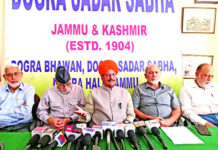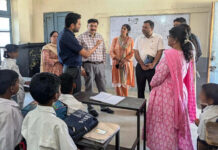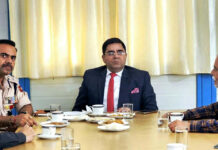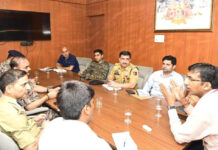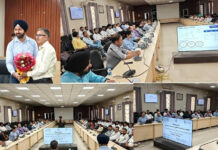Nearly 90 per cent to 95 per cent of schools in the country are still struggling for basic facilities, said Delhi Deputy Chief Minister Manish Sisodia on Thursday and called for increasing education budget. Sisodia, who handles education and a host of other portfolios in Delhi’s AAP government, said at least 6 per cent of the GDP needs to be allotted to education. He was speaking on the topic, ‘The success story of the government schools in Delhi’, at a city-based school. Sisodia highlighted the success of the “happiness” class, a concept introduced by the Delhi government in its schools for students from Nursery to Class 8. “A daily 45-minute happiness class beginning with mindfulness, followed by storytelling and other activities, is receiving a good response in Delhi and bringing about positive change among students,” said Sisodia. The minister said education in India can be divided into three sections. “As far as challenges are concerned in education, I would like to categorise Indian education in three sections. In first, there are 90 per cent to 95 per cent schools which are still struggling for basic facilities. “Then there are 5 to 10 per cent schools that have facilities but they are struggling for education and there are hardly 1 per cent schools that are really working on education,” he said. Our responsibility should be to ensure that these 90 per cent to 95 per cent schools get at least minimum facilities, he said. “In Delhi, before I became education minister, schools were struggling for facilities. We gave bare minimum facilities to these schools and now we are working to impart good education,” Sisodia said. Talking about the new national education policy, he said there are a lot of things in it which look good on paper. “A lot of wishful thinking about education is included. But teachers training is needed on a large scale for this, schools need a budget. “Six per cent of the GDP needs to be alloted to education, that needs to be the first line of the new education policy,” said Sisodia. Elaborating on the happiness concept, he said, “While we speak of happy classrooms, we still need to define what Happy Teachers are. “We expect them to come in and teach for eight hours and don’t even provide clean washrooms or drinking water. They can’t be happy this way.” He said if one wants them (teachers) to provide world- class education, give them a world view at least and let them come to know what is happening outside. “That is why we have started teacher exchange programmes, sponsoring visits abroad and so on,” the Delhi minister added.

Dogra Herald is the media of J & K, breaking language and geographical barriers, connecting J & K to the rest of India.
0191 245 4946
info@dograherald.com
Latest articles
Sonam Wangchuk to sit on hunger strike again
Three months after he sat on a five-day hunger strike in support of the demand for various safeguards for Ladakh, including extension...
Why wrestling lightweight Puducherry finished third at Nationals and Sikkim, Andaman fielded ‘strong’ teams
Jaipur, Feb 5Weigh-ins and verification of men’s freestyle wrestlers completed closer to midnight, finalisation of jumbo draws that resulted in a delayed...
Smartphone technology is a superpower, use it wisely: Jugal Kishore Sharma
DOGRA HERALD BUREAUJAMMU, july 12Focussing on the need of technology and dependence of our daily lives on smartphones, Jugal Kishore Sharma said...

